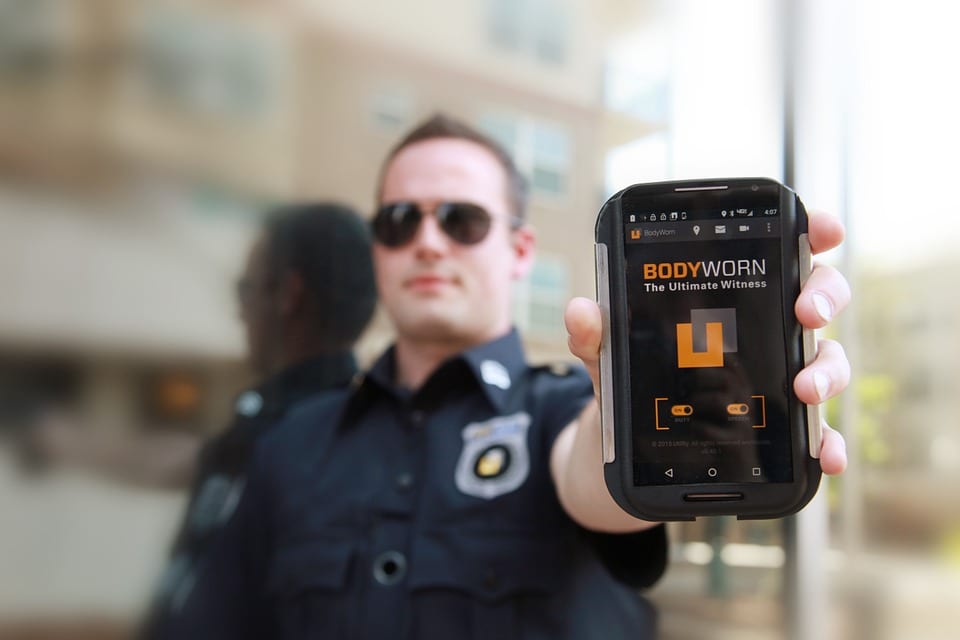CommonWealth Magazine
[ad_1]
LIKE MASSACHUSETTS As the legislature continues to study how to regulate body cameras worn by police, the Supreme Judicial Court on Friday set legal limits on how images from body cameras can be used.
The court found that a police officer can record a police response at someone’s home using a body camera. But the police cannot then use those images for an unrelated warrantless investigation.
“The home is not a place to which the public has access, or where a person might expect a recording made during a lawful visit by the police to be kept indefinitely, accessible without restriction and examined at will. for reasons unrelated to the objectives of the police. visit, â€Judge Dalila Wendlandt wrote on behalf of the court in a 35-page notice.
The decision was rendered in Commonwealth v. Abdirahman Yusuf. The Boston Police Department responded to a call about domestic disturbances at Yusuf’s home, and an officer carrying a body camera filmed the home during police response. The images were then uploaded to a Boston Police Database.
The Boston Police Gang Unit at the time was conducting an independent investigation into Yusuf for gun-related offenses. A detective seeking a basis to obtain a search warrant for Yusuf’s home viewed footage of the domestic disturbance call, compared the footage to another video of Yusuf holding a gun, and identified the location where he had the gun according to the presence of distinctive curtains. . The detective obtained a search warrant, found a weapon, and arrested Yusuf for firearms.
Since the use of body cameras is relatively new in Massachusetts, little regulation or legal precedent has been established to govern their use. The SJC’s decision addressed two issues.
The first was the question of whether a video taken of a house by a body camera amounts to an illegal search of the house. In this case, the SJC decided not. As long as the officer is legally present in the house and does only what is necessary to answer the call, having the body camera footage is no different than having a police officer to see something. which is in full view.
However, the court then found that Boston Police acted inappropriately in allowing the gang unit to review the footage for an unrelated investigation. While the initial taking of the footage was warranted, Wendlandt wrote, “this subsequent examination for investigative and unrelated reasons cannot be justified as a limited extension of the officer’s observations for all to see.”
Wendlandt wrote that the reason body cameras are allowed is to protect police from false claims of damage, to promote police accountability, and to serve as a record of interactions between police and civilians. But there are also legitimate concerns that the cameras are being used as an invasion of privacy.
She said allowing a police officer to scan footage for evidence of crimes unrelated to the reason an officer was called to a house amounts to a ‘general warrant’, a long-standing British practice. consisting in letting the police search for a house. evidence of a crime, which the Constitution’s prohibition against an unlawful search was supposed to address.
Allowing officers to examine footage to investigate an unrelated crime, she wrote, “is divorced from protecting police officers from false accusations of misconduct, ensuring police accountability or keep a record of the interaction between police and civilians.
Amid national allegations of police misconduct, the use of police body cameras has grown both in Massachusetts and across the country. With this came more and more calls for regulation of cameras and their images.
A bill that would have developed a statewide code for the use of body cameras was introduced in 2019. A major criminal justice reform bill that was enacted by Governor Charlie Baker in December. On December 31, 2020, created a working group to study the regulation of body cameras. But so far, the legislature has not adopted any regulations.
Kade Crockford, director of the Freedom Technology program at the Massachusetts ACLU, said the agency welcomes the ruling that police cannot store and “trawl” around body camera footage without obtaining a warrant. “Digital technologies such as body-worn cameras give government agencies vast new powers to collect, analyze and process information about us,” Crockford said in a statement. “When combined with unlimited data storage and machine learning-based analytics tools, the stakes are even higher. Today’s decision helps ensure the survival of privacy in the 21st century.
TO SHARE
[ad_2]

